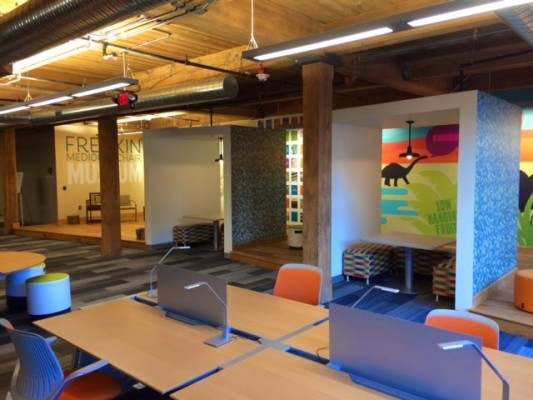The below post originally appeared on Net Impact’s CampusGroups page.
Upon first steps into the 2017 Net Impact Conference, I was quickly reminded that the community of leaders who infuse social purpose in each business decision is vast and global.
Student chapter leaders from Ecuador spoke about how their partnership with Ferrero Rocher empowered female entrepreneurs to build small businesses and boost local economies. Tech leaders from Silicon Valley stressed the importance of capturing the next industrial revolution of Artificial Intelligence and Virtual Reality for social initiatives. Governing municipalities shared strategies on industry cross-pollination to curb harmful effects of climate change.
Whatever the tailored interest of corporate citizenship or social responsibility, a session was available, inviting a massive exchange of innovative ideas.

The Career Expo further highlighted the surprising participation of diverse stakeholders. Samsung and Monsanto were recruiting for tech and food sustainability pioneers. Pyxera Global and Accenture were seeking social impact-minded consultants. Other exhibitors included the Environmental Defense Fund, Kiva, National Park Service, Shell Corporation, Education Pioneers, Brown-Forman, and more.

Snapping selfies with the Coke Polar Bear!
The weekend was also filled with fun festivities. The conference kick-off was held at the World of Coke, where we mingled with students from over 300 Net Impact chapters and snapped selfies with the Coke Polar Bear. Intermittent ice cream socials kept our fatigue at bay, all while closing the amazing event at a fresh produce market downtown. I went to bed Saturday night with sore feet because I danced the final evening away. I woke up the next morning with an email invitation to pre-register for next year’s Net Impact 2018 event, and I nearly submitted a deposit. If that doesn’t tell you how wonderful the conference was, I don’t know what will.
In closing, I’d like to leave some food for thought for those who didn’t attend Net Impact 2017:
Often times, corporate citizenship or social responsibility is perceived as a pet project delegated to a separate back corner department within a massive corporation. For our fellow Olin colleagues interested in a traditional business venture (Venture Capital, Investment Banking, Strategy Consulting, Brand Management, etc), I implore you to dive more critically into understanding how social purpose can be infused within each action or decision you make as a future executive. Not only are there performance metrics to report for good PR, but there are also evidence-based payoffs for the communities you intentionally consider as partners.
Increasingly, corporations are recognizing the importance of this philosophy, and we shouldn’t be behind as Olin MBAs. Additionally, there are career options beyond Corporate Social Responsibility with salaries to support a decent way of living. Impact Investing, Supply Chain Sustainability, and Social Impact Consulting are growing industries—and ones to consider when choosing your path moving forward.
Guest blogger: Danny (Yea) Lee, MBA/MSW, General Manager, Net Impact








 After our first class, we were divided into teams and set loose to get started on our projects! My team’s consulting project is for
After our first class, we were divided into teams and set loose to get started on our projects! My team’s consulting project is for 